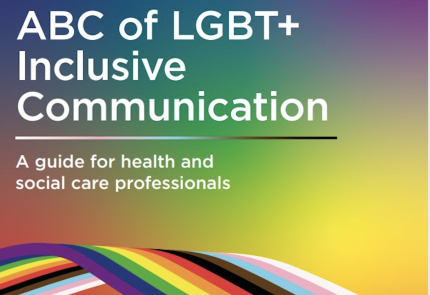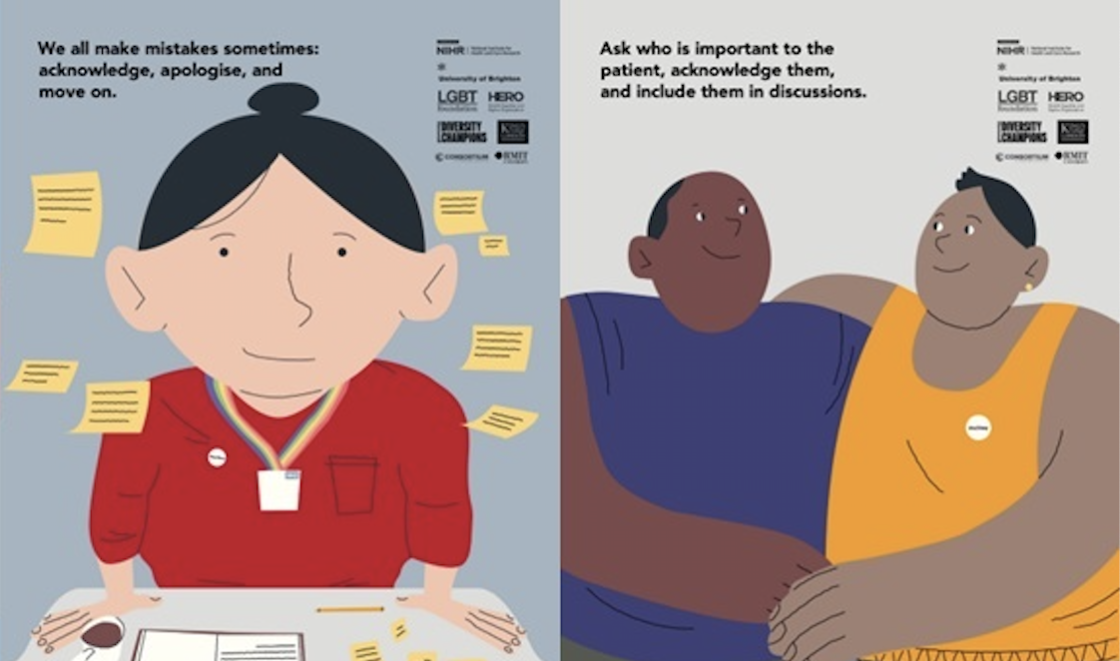The way that health and social care professionals speak with LGBT+ patients, and people who are important to them, affects experiences of healthcare. However, these professionals do not consistently receive training on how to do this sensitively.
Palliative and end of life care researchers who are part of NIHR ARC South London responded to this issue by initiating a project (ACCESSCare-Communication) to identify how LGBT+ people with serious illness want their sexual orientation and gender identity or gender history to be engaged with by health and social care professionals.
The team also aimed to develop freely accessible guidance on improving inclusivity of communication around sexual orientation and gender-related matters, for use by clinicians and educators.
How the research was conducted
The researchers conducted interviews with LGBT+ people with serious illness, informal caregivers, including partners, friends and family, and health and social care professionals. Findings from the interviews were used to develop draft guidance.
In total, the research team interviewed 74 people, including:
- 34 LGBT+ people with serious illness
- 13 informal caregivers including partners, friends, and family members
- 27 health and social care professionals working with people with serious illness.
Analysis of the interview data highlighted three principles to ensure communication with LGBT+ people is more inclusive and improved. Health and care professionals should:
- Approach all interactions using inclusive language
- Be aware of the wider environment and who else is present
- Create inclusive opportunities for people to share aspects of their self in care.
Commenting on the findings, Dr Debbie Braybrook, research associate in palliative care at King’s College London, and a member of the research team, said: “When seriously ill LGBT+ people feel unable to share important aspects of their identity this can be deeply distressing, detrimental to appropriate care, and hinder the involvement of significant others."




